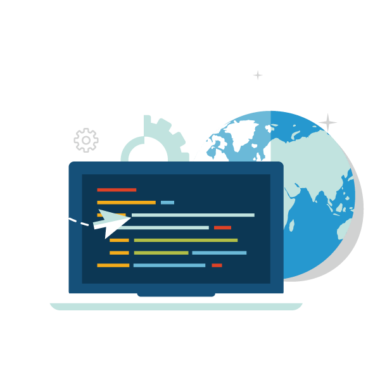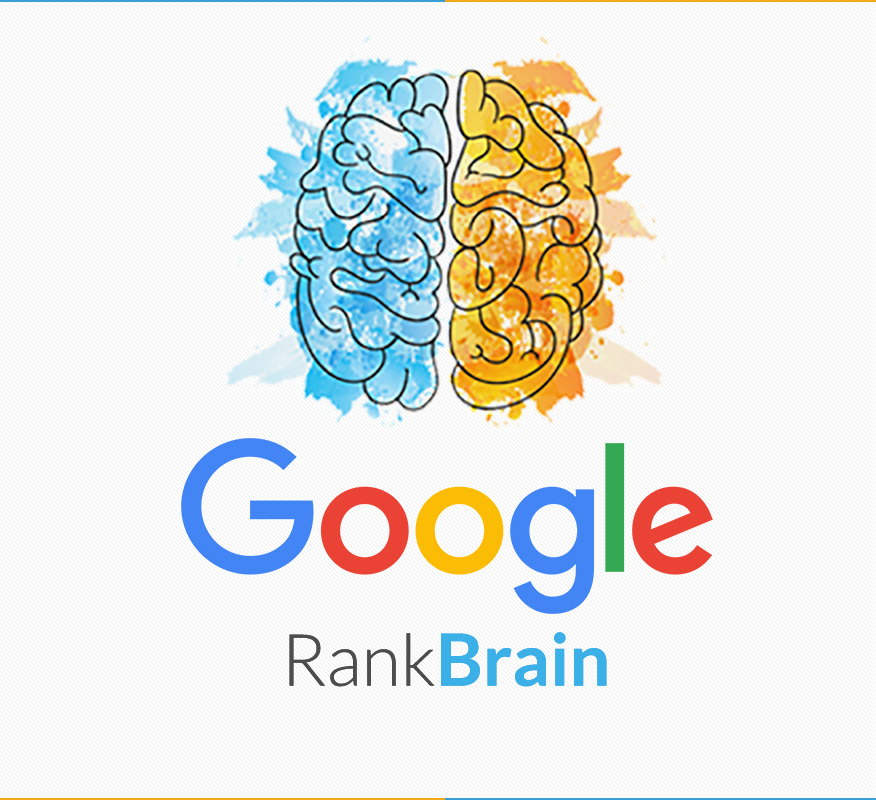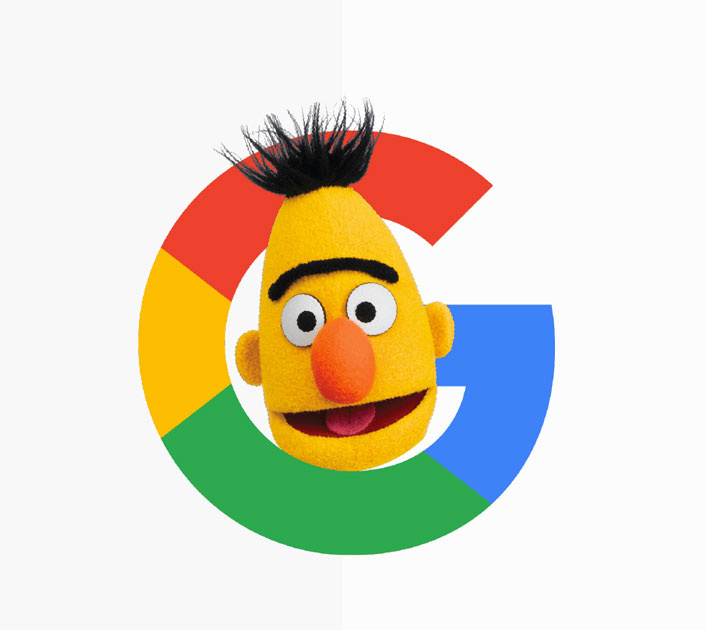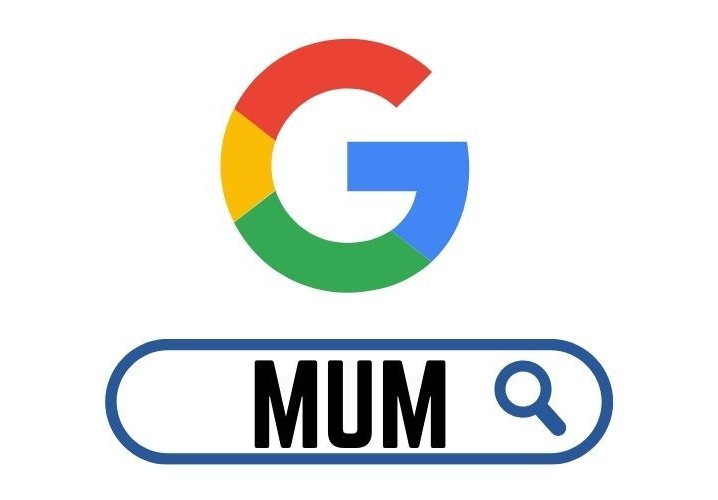
AI and SEO: Bridging the Gap in a New Era of Search Optimization
Since 2015, Artificial Intelligence (AI) has been making its mark in the SEO industry. This rapidly advancing technology is now available to the general public and is becoming exponentially more powerful as it evolves.
SEO has been building to a crescendo within the industry around natural language processing (NLP) artificial intelligence (AI) models that became available to the public. But let’s not forget - AI didn’t just crash the party. Even amidst the recent surge of excitement surrounding AI and its burgeoning role in SEO, established SEO Experts have known that AI is not a newcomer to this arena. The technological groundwork was integrated into the industry as early as 2015 when Google integrated its BrainRank algorithm.
This rudimentary AI was a revolutionary integration that completely changed the SEO landscape. It weaned out websites utilizing Black Hat techniques and prevented keyword-stuffed, low-quality content from ranking high in search engines - a transformation that undeniably redefined the SEO landscape.
And now once again, new technologies in AI are redefining our landscape. Yet, the buzz surrounding us today isn’t merely about the capabilities of AI (though massively impressive); it's more about a seismic shift in accessibility.
In the last two years, the emergence of Large Language Models (LLMs) like Google's Bard, recently rebranded to Gemini, and Chat GPT (Generative Pre-trained Transformer) by OpenAI has democratized access to the kind of sophisticated AI power previously exclusive to giants like Google. Suddenly, this exclusive technology, the very technology we’ve been bending over backward to optimize for, is available in a feature-rich platform at bargain-bin prices for any SEO guru with an internet connection. This accessibility marks a pivotal shift, heralding an era where the keys to their algorithmic Ferrari, once shrouded in opacity, have been handed out to the driving masses. The possibilities are boundless, constrained only by the limits of one’s imagination to harness its power.
Google’s First Use of AI
Exploring the evolution of Google's AI journey reveals a series of pivotal milestones that have significantly shaped the SEO landscape. From the early adoption of algorithms designed to understand and categorize web content to the integration of advanced machine learning models like RankBrain, Google has continuously expanded its capabilities. Let’s take a look at the role that Artificial Intelligence played in each one.

RankBrain (Launched in 2015)
The Genesis: RankBrain is a machine learning AI system that helps process and interpret search queries, particularly those that are complex, ambiguous, or have not been seen before. Its primary function is to understand the intent behind queries and match them with the most relevant search results, even if the exact words of the query aren't present in the search index.
The Roll of AI: RankBrain uses AI to analyze the context of each word in a query, making it possible to understand the overall meaning rather than just focusing on individual words. This is especially important for handling long-tail queries and questions that may not have a straightforward answer.
BERT (Bidirectional Encoder Representations from Transformers) (October 2019)
The Genesis: BERT emerges as a watershed in AI's quest to decipher the intricacies of human communication. This deep learning algorithm marks another paradigm shift, enabling Google to grasp the full context of words within search queries. It's a leap towards an era where machines understand us more deeply, particularly in parsing longer, conversational queries or those where prepositions dramatically alter meaning.
The Role of AI: BERT represents an AI breakthrough in analyzing text bidirectionally, assessing the context of each word not merely in a linear fashion but in the entirety of the sentence. This depth of understanding permits an unprecedented comprehension of language's subtleties, catapulting Google's capacity to align closely with human intent. Through this lens, AI isn't just processing information; it's beginning to understand it, transforming how we interact with the vast repository of human knowledge.


MUM (Multitask Unified Model) (Announced in May 2021)
The Genesis: MUM stood as the next evolutionary step in Google's journey to master the art of understanding human inquiry. This AI-driven model expanded on the groundwork laid by predecessors, taking a giant leap forward in processing the complexity and nuance of search queries. MUM is designed to understand and interpret information across languages and formats, enabling Google to provide answers from a global knowledge base rather than being confined to language-specific silos.
The Role of AI: MUM harnesses the power of AI to perform a multitude of tasks simultaneously, from understanding the context of queries to generating nuanced answers across different languages. Its ability to analyze text, images, and potentially other types of data in the future, all while understanding the intent behind queries, showcases an AI that's not just analyzing but comprehending and connecting dots across a myriad of information types. This approach signified a monumental shift towards an AI that can think, learn, and interpret the world's information in a way that mimics human cognitive abilities, making the search experience more intuitive and comprehensive than ever before.
Google's Brainchildren and ChatGPT: Unpacking the Differences
Google’s Brainchildren, including advanced AI models like BERT and RankBrain, and ChatGPT, share a foundational technology and conceptual approach of AI models for processing natural language, notably rooted in the transformative transformers architecture. This is a groundbreaking shift allowing machines to grasp the nuances of human language. This architecture doesn’t just process text; it perceives the context, making these models not just smart, but profoundly insightful. Here’s an exploration of their similarities and the core AI technology they share:
Similarities
- Large Language Models (LLMs): As LLMs, both Google’s AI innovations and GPT have been trained on extensive corpora of text data. This extensive training empowers them with a broad understanding of language, enabling them to generate coherent and contextually relevant text across various languages and formats.
- Proficiency in Natural Language Understanding and Generation: These models excel in both understanding nuanced language (NLU) and producing text that closely mimics human writing (NLG), thanks to their sophisticated handling of context and attention mechanisms.
- Versatility and Multilingual Capabilities: Designed to be adaptable across tasks and languages, both Google’s AI technologies and GPT demonstrate remarkable flexibility. They can process and generate information in multiple languages, making them invaluable tools for global applications.
- Training on Diverse Data Sources: The broad and varied datasets used to train these models equip them with knowledge across a spectrum of topics, allowing for a wide range of queries and content generation tasks to be addressed competently.
Key Differences
At this point, the differences may appear obvious, but lets take a look. Despite their foundational similarities, the primary applications and development intentions behind Google’s AI algorithm models and GPT diverge significantly. Google’s AI efforts, particularly models like BERT, are tailored to enhance the processing and understanding of search queries, aiming to refine the accuracy and comprehensiveness of search results. Conversely, OpenAI’s GPT, especially in its fourth iteration, serves a broader array of purposes, from creative writing and chatbots to complex problem-solving tasks, demonstrating its versatility as a general-purpose AI tool.
So as you can see, the trajectories of these technologies unfold in distinct manners concerning their purpose and application. Google's AI algorithms act as the world's most efficient librarians, cataloging the internet's vast knowledge and retrieving the exact piece of information you need with precision. They understand the inquiry, sift through the archives, and present you with the most relevant and accurate information. In contrast, GPT resembles a Renaissance artist, proficient in a multitude of disciplines. It doesn't just locate information; it creates, innovates, and adapts, painting a broad strokes across the canvas of human intellect and creativity, from generating original artwork to debating philosophical concepts.
"Suddenly, this exclusive technology, the very technology we’ve been bending over backward to optimize for, is available in a feature-rich platform at bargain-bin prices for any SEO guru with an internet connection."
"In the broader picture, I've come to see AI as revolutionary as the invention of the Gutenberg press. Just as the printing press dramatically expanded access to knowledge and transformed society, AI is reshaping how we access, understand, and create information"
Looking Ahead: AI's Impact on SEO Landscapes
In conclusion, the intersection of AI and SEO is creating a landscape ripe with opportunities for innovation and growth. By embracing AI’s capabilities and integrating them into SEO strategies, professionals can successfully navigate the changing terrain, taking advantage of creative ways to utilize artificial intelligence. Leading SEO platforms are leveraging this technology to significantly boost the capabilities of their tools. However, it's imperative to approach this new horizon with a critical eye. Not all innovations will lead us to a utopian outcome of productivity and success; the rapid pace at which our domain is transforming necessitates a vigilant posture to adapt and thrive amidst these changes. It's within this context that we must consider the potential scenarios that might not only challenge but also impede our industry in SEO. By anticipating these unanticipated hurdles, we empower ourselves to navigate the complexities of our evolving field with foresight and resilience. Predicting the precise trajectory of AI's influence on SEO is challenging, but to give you a sense of its potential, here are three hypothetical scenarios.
1) The Hyper-Personalized SERP
- The Change: AI Enhanced Search results become so heavily tailored to individual users’ histories, preferences, and even social graphs, that results are not pages but a meta-aggregation of the top search results, while legacy search engines are de-emphasized.
- Impact on SEO Experts: Makes traditional SEO metrics harder to track consistently. Assumably requires a nuanced focus on understanding diverse search intent, and potentially even optimizing for platforms beyond traditional search engines.
- Drawback: Significantly reduces the scope of traditional SEO work. SEO focus may shift to internal platform optimization, requiring experts to diversify their skills into platform-specific marketing
2) Algorithm Transparency and Predictability
- The Change: AI-driven search engines start to operate with highly complex algorithms that are self-evolving, making it nearly impossible for SEO experts to understand or predict changes in ranking factors.
- Impact on SEO Experts: Makes it challenging to develop and maintain effective SEO strategies. The unpredictability requires continuous, real-time adjustment of SEO tactics.
- Drawback: Increases the complexity and uncertainty in SEO work, potentially leading to higher costs and reduced effectiveness of traditional optimization efforts.
3) AI-Generated Content Floods the Web
- The Change: Once AI writing tools become ubiquitous and are embraced by users worldwide, the internet will see a surge in mediocre AI-generated content flooding various platforms. Distinguishing between AI-generated and human-written material becomes increasingly challenging due to the sophistication of these tools and their widespread adoption.
- Impact on SEO Experts: Quality, creativity, and engagement becomes an even greater differentiator. Google potentially gets stricter about originality and E-A-T signals even tougher. SEO experts will need to focus even more intently on demonstrating value and authority.
- Drawback: Noise in search results increases dramatically, making it harder to stand out without substantial investment.
- Overall Opinion: Whether content is crafted by AI or typed by humans, if it’s engaging, accurate, and of high quality, catering to user needs, it will secure a good rank. I'm confident in Google's algorithms' ability to effectively spotlight content that stands out for its utility and relevance.
In the broader picture, I've come to see AI as revolutionary as the invention of the Gutenberg press. Just as the printing press dramatically expanded access to knowledge and transformed society, AI is reshaping how we access, understand, and create information. It's a momentous shift, offering unprecedented opportunities for enhancing creativity, efficiency, and the spread of ideas.
Through this lens, I view AI as more than a technological novelty, but as a pivotal epoch in the human saga. It's a catalyst that will undoubtedly spawn a new era of creativity, intellectual diversity, and, perhaps most importantly, a deeper understanding of our own cognitive and cultural landscapes.
This new technology at our fingertips is as terrifying to me as it is exciting. As uncertain as the future may be, one thing is for sure: it's going to be a new renaissance of discoveries and innovations.
Written By: Jourdan Rombough
"He is a seasoned SEO expert with over a decade of experience in the nuances of technical SEO. Currently, he is expanding his horizons by studying artificial intelligence, and exploring how AI innovations can transform digital strategies. With a unique blend of expertise and curiosity, he constantly seeks to integrate his technical knowledge with cutting-edge advancements."


